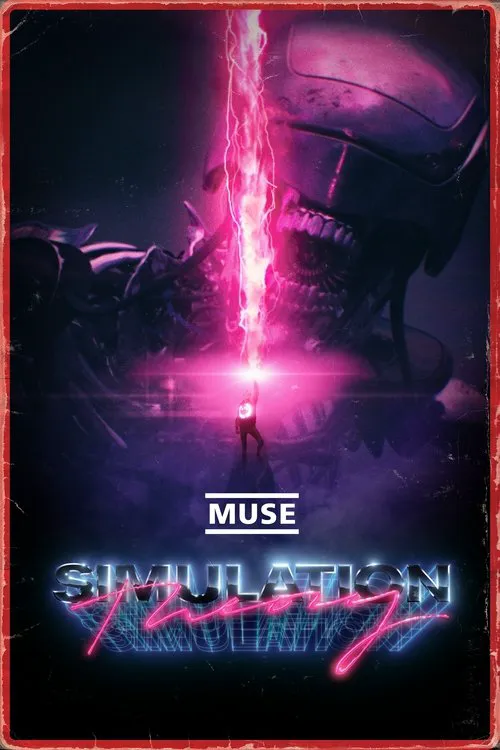Muse: Simulation Theory

Plot
In the gripping film "Muse: Simulation Theory," viewers are transported to a world where the boundaries between reality and fantasy are blissfully blurred. Conceived and filmed at London's O2 Arena in September 2019, this cinematic spectacle is a masterclass in immersive storytelling, weaving a narrative that is as much a concert film as it is a thrilling adventure into the unknown. At the center of the mystery is a team of intrepid scientists, led by a brilliant and enigmatic figure known only as the lead scientist. These experts in the esoteric and paranormal are driven by a curiosity that borders on obsession as they investigate a series of inexplicable anomalies that seem to be appearing all over the world. These enigmatic occurrences take many forms – eerie lights in the sky, unexplained disembodied voices, and seemingly inexplicable transformations of everyday objects – and they have left the scientific community baffled and on high alert. As the scientists delve deeper into the mystery, they begin to suspect that there may be more at play here than they initially thought. Is it possible that our collective perception of reality itself is being manipulated or distorted? Are we living in a simulated world, one that is being carefully constructed and controlled by some unknown force? As the investigation unfolds, the narrative becomes increasingly entwined with the visual spectacle of Muse's music. The band's songs, such as "Thought Contagion," "Algorithm," and "Blockades," are woven seamlessly into the story, creating a synesthetic experience that immerses the viewer in the world of the scientists. The visuals are stunning, a dazzling array of lights, smoke, and pyrotechnics that create a mesmerizing spectacle that defies the conventional boundaries of concert film. The band's lead singer, Matt Bellamy, takes center stage, his soaring vocals and impassioned performance bringing the music to life in a way that is at once deeply personal and universally relatable. He is supported by his bandmates, Chris Wolstenholme on bass and Dominic Howard on drums, whose virtuosic playing elevates the music to new heights. Throughout the film, the lines between narrative and concert film are blissfully blurred, creating a dreamlike atmosphere that is both captivating and thought-provoking. The band's music becomes a kind of sonic sorcery, transforming the space around them into a world of wonder and enchantment. As the investigation reaches its climax, the scientists come to a shocking realization: the anomalies they've been studying may not be random events at all, but rather a symptom of a larger, more profound phenomenon. Is it possible that our world is being rewritten before our very eyes, and that the fabric of reality itself is being torn apart? The conclusion is left tantalizingly open to interpretation, leaving the viewer to ponder the implications of this mind-bending theory. Is our world a simulation, a carefully constructed illusion designed to keep us in a state of ignorance or complacency? Or is there something more sinister at play, a deliberate effort to control and manipulate the very fabric of reality? Ultimately, the film's answer to these questions is left deliberately ambiguous, inviting the viewer to draw their own conclusions. What is certain, however, is that "Muse: Simulation Theory" is a cinematic experience unlike any other – a thrilling adventure into the unknown that challenges our perceptions and leaves us questioning the very nature of reality itself. The film's themes of technology, free will, and the blurring of boundaries are timeless and universal, resonating deeply with audiences who are increasingly disenchanted with the world around them. As the band's music builds to a breathtaking crescendo, we are left with more questions than answers, but also a profound sense of awe and wonder at the infinite possibilities that lie beyond the boundaries of our reality. "Simulation Theory" is a groundbreaking film that redefines the possibilities of concert cinema, pushing the boundaries of what we think is possible on screen. It is a testament to Muse's innovative spirit and creative vision, and a reminder that music and cinema can come together to create a truly transcendent experience.
Reviews
Recommendations




